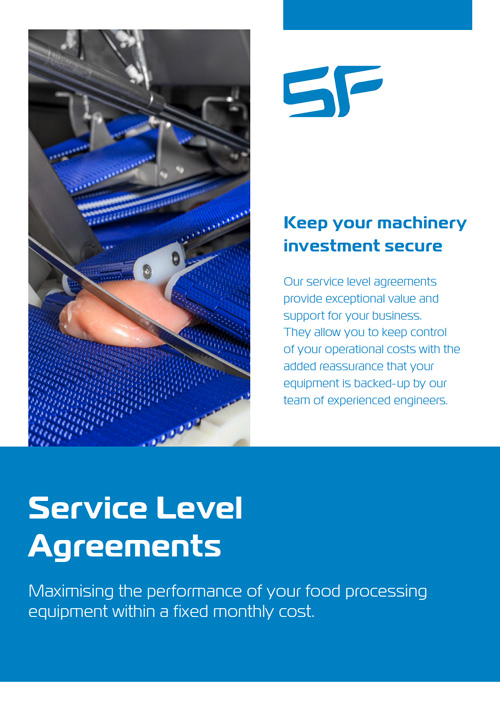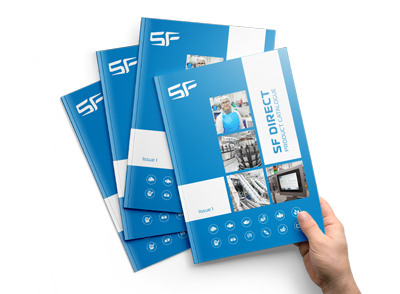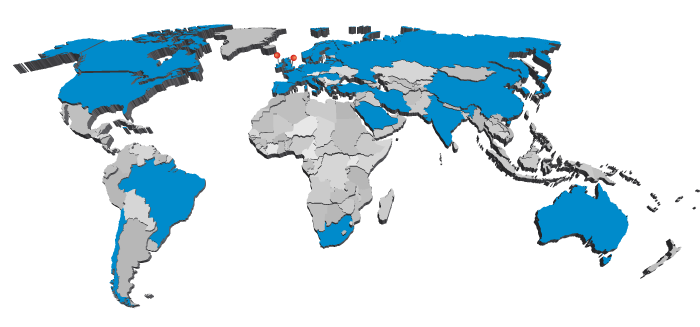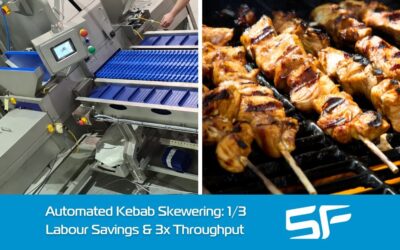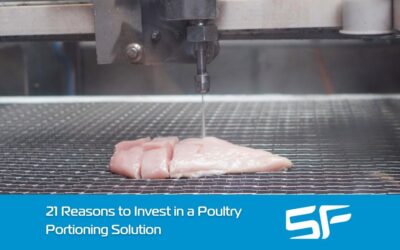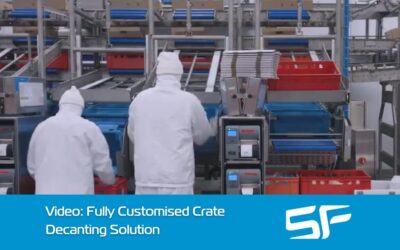Q&A With Engineering Manager Jeremy Nesbitt
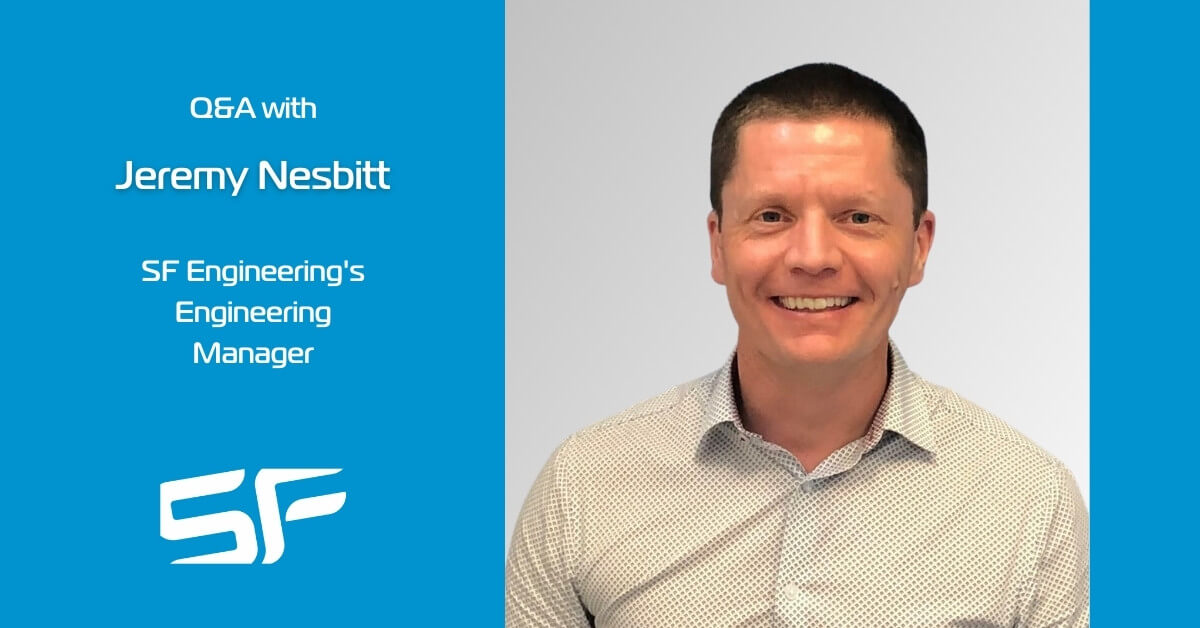
Jeremy’s passion for engineering comes through in everything he does, whether it’s talking about the food manufacturing equipment industry, communicating with his team, or working on client projects. That engineering passion started at a young age, and he now has extensive experience under his belt.
That experience isn’t all in the food industry, but it is an interesting engineer’s journey. Jeremy now works on some of the largest food factory installation projects in the country, with each one benefitting from his detailed knowledge and unwavering pursuit of engineering excellence.
We sat down with Jeremy to find out more about how he got into the industry, his interest in engineering, and his thoughts on the current trends in food factory design.
Question: What is your role and what are your responsibilities in SF Engineering?
Jeremy: “I’m the manager of the project and design teams.”
Question: How did you get into this industry? What is your background?
Jeremy: “I’ve always been an engineer. I made my mind up when I was about 13 that I wanted to be an engineer based on tinkering with motorbikes and car engines. I decided to do an engineering apprenticeship very early on. That helped me focus at school, much to the annoyance of the art, drama, and RE teachers where I made zero effort whatsoever. I knew I needed maths, physics, and a couple more like English and chemistry to get my apprenticeship.
“I went to Hotpoint as a 16-year-old to do a four-year technical engineering apprenticeship focusing on design engineering, project engineering, and production engineering, rather than maintenance.
“I then took a turn into the commercial world becoming a buyer and then a senior buyer. After about 10 years, I moved to a smaller company and went into the world of surface drainage as purchasing manager. About eight years later I moved back into a technical role with the same company, becoming their technical manager.
“After about 14 years with that company, I decided to take a break. Six months turned into an 18-month career break where I did all sorts of stuff I’d always wanted to do. Then this opportunity with SF Engineering came along. I knew that being a company with in-house design and manufacturing capabilities, my engineering interests would be satisfied.”
Question: Describe your journey with SF Engineering, from when you joined until now.
Jeremy: “I came from outside the industry. There is an attitude sometimes of you don’t know the industry, so what are you doing here, versus we want people from outside the industry. You don’t necessarily need to know the ins and outs of the industry to contribute. I’m applying all of my knowledge of bigger companies and all of that learning and experience while being a complete newbie in the food industry.
“I’ve learned a massive amount since I joined and I think as an engineer, you can apply your skills to any industry.”
Question: What gives you the most satisfaction from the job?
Jeremy: “It’s the engineering. On-site design and on-site manufacturing create a wonderful environment for an engineer to indulge his mind. If I cast my mind back to the 13-year-old me dreaming of becoming an engineer, I think I would be very happy that I would end up in this environment very much using my engineering knowledge and skills and teaching others, as well as the blend of management and professionalism that comes with my role.
“As that 13-year-old, I think I would be very happy being able to tell people the tapping drill size for an M8 metric fine thread off the top of my head. As I say, the engineering part of me is very strong, and it is very much satisfied here.
“It does say SF Engineering and I hold that ‘engineering’ part really strongly. I often say we are SF Engineering; we are not SF-buy-it-in-from-somebody-else.”
Question: What are the main things that make SF stand out?
Jeremy: “In my previous company, we were very focused on what the competition was doing. I think there is a lot less of that here. We are not chasing the competition. I think that is partly because we focus on ourselves and how we can do a world-class job, how can we be better at what we do. We don’t worry too much about the competition as I don’t think we need to.
“Also, from my experience in the food industry so far, we are very much more professional and organised. This is a company where everyone is pulling in the same direction. Everyone wants to do a good job. There are no slackers, there aren’t people coming in just to punch their cards and leave again. It’s everyone pulling in the right direction to the highest standards.”
Question: What are the main trends in the food manufacturing industry that you see?
Jeremy: “What appears to be happening now is what some people are calling blueprinting. Our customers are ever larger as small groups and independents become part of larger groups. Therefore, a lot of our customers have multiple sites across the country, and they want to establish a common process. So, they say let’s have a new installation in this factory and when it’s all up and running and working well, we’ll duplicate it across our other sites.”
Question: What is it like working for SF?
Jeremy: “It’s been a very positive experience. It’s a professional team that is led by professionals that want to achieve world-class results. It’s all about improvement and delighting customers. If anyone is interested in working in a true engineering environment where design and manufacture are on site, this is the place for them.”
